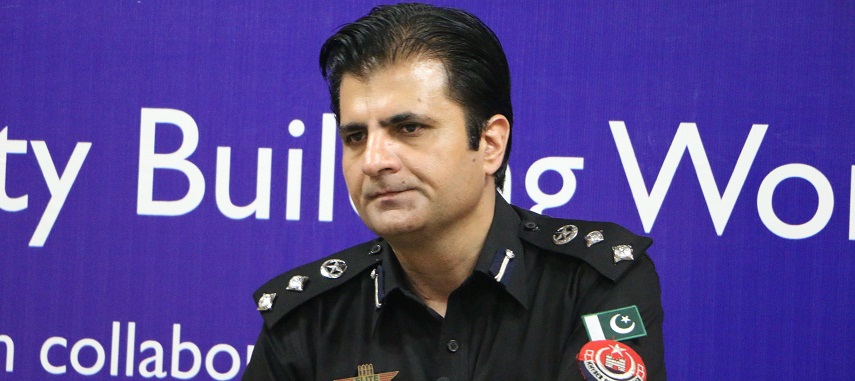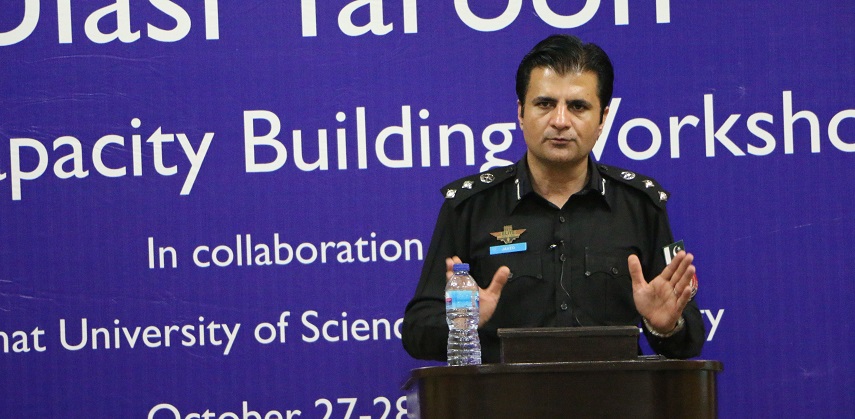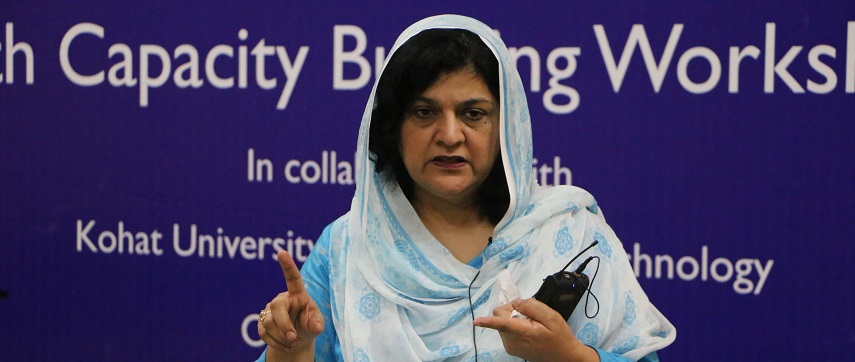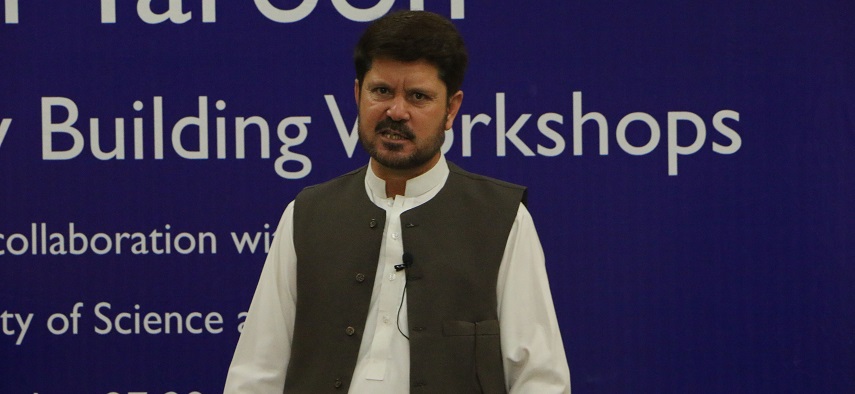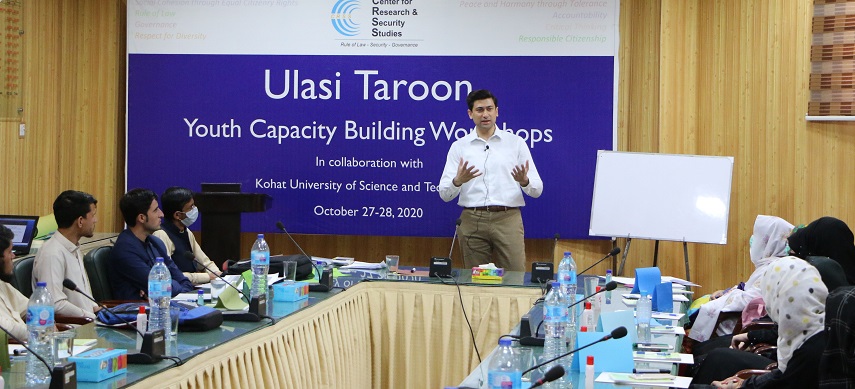Young minds have an immense critical thinking potential and their curiosity should be channelized into dialogue for social cohesion and other development objectives. Humans cannot live in isolation and must cooperate with each other to coexist peaceful. In the contemporary times, the societies across the world are quite diverse; rich in linguistic, cultural and religious diversity and rule of law is an essentiality to regulate peaceful coexistence of the members of these societies with diverse backgrounds. Rule of law is also a prerequisite to maintain order and avoid chaos, hold everyone accountable and cultivate equal citizenry through an institutionalized mechanism.
These views were expressed by Mr. Javed Iqbal, District Police Officer (DPO), Kohat during the 29th round of Ulasi Taroon Youth Capacity Building Workshops, organized by the Center for Research and Security Studies (CRSS) at and in collaboration with the Kohat University of Science and Technology.
DPO Kohat further noted that we are all born equal, fundamentally, we are all equal and equally subject to and accountable before the law regardless of our social, political or economic backgrounds. Only across the board application of law upholds rule of law and social cohesion. Discrimination thrives on the citizens’ ignorance of their fundamental human rights as enshrined in the constitution. Therefore, constitutional, rights based social education is critical to strengthen rule of law. Besides, it is also upheld by the cultivation of the habit of self-accountability and law-abiding citizenship. The change starts from each one of us, by becoming a good, responsible human being, who also self-reflects on the justification of one’s own attitude and behavior. Only then can we set out for the journey that marks the beginning of that change and realize our responsibility towards our society, country and humanity.
Its very important for youth to be positive to cultivate a result-oriented action and course of social change drive. In a diverse setting, differences are bound to happen but they should never deter our cooperation for and formulation of shared goals of development, for an ever more connected and prosperous future.
In the post globalized era, social cohesion must exist not only on the local/ communal level but expand to the provincial and national levels and beyond these national boundaries to foster global cooperation.
Advocate Ali Gohar, said that inclusive democracy, good governance and indiscriminate accountability strengthens social cohesion and vice versa. All these ideals nourish by reinforcing the values and cultivating the democratic habits on daily basis.
A sympathetic attitude characterized by respect for different opinions needs to be cultivated in the young throughout their formative years of learning and education. Youth leadership development lies in giving them opportunities of thinking and exploring the world.
A grievance redressal mechanism is a precondition for and central to an inclusive system of democracy. Democracy is not just for the majority, instead it’s when the minorities also enjoy equal rights and entitlements as provided by the constitution. Protecting the rights of citizens in minority is not just the onus on state but also on the citizens in majority. Responsible citizenship demands compliance with laws without being asked for. Freedom of expression should also observe limits of not violating someone else’s rights. As a matter of transnational cooperation at different levels of society, not only we should raise voices and democratic concerns against the injustices at the national level but anywhere across the world.
The founder of Pakistan, Muhammad Ali Jinnah’s 11th August, 1947 speech is testament to his vision for equal citizenry in Pakistan. As responsible members of the society, only by making this dire transition from the selfish vision to selfless, collective vision, to formulate shared goals of development, can we have social cohesion.
Ms. Shagufta Khalique, educationist, said that the key ingredients for social cohesion are acceptance, equality and rule of law. Without making the most of the rich potential of diversity, and its acceptance, it’s difficult to live in harmony with each other. Also important is to build understanding about other faiths for interfaith harmony in the society.
Communication is an extremely important skill for conflict resolution where you listen to and empathize with others. Youth as future leaders must equip themselves with these skills to be effective peace builders.
Shams Momand, Project Manager, CRSS, stressed that youth must comply with the core constitutional values of respect, equality, tolerance and rule of law to foster social cohesion in the society.
Mr. Malik Mustafa, Team Leader, Ulasi Taroon CRSS said critical thinking is one of the most essential skills youth need to master to be capable of problem solving in the real-time environment in their practical lives. Critical thinking is about using logic and critical inquiry to draw inferences. It involves developing ones’ understanding on the basis of all the available information and using research-based evidence to support your arguments.
About Ulasi Taroon:
Ulasi Taroon is a youth leadership development initiative of CRSS running since 2017, with over 800 alumni from different public and private sector universities across KP. The programme aims to promote social cohesion and cultivate the young through a discourse embedded in the core constitutional values of peace and harmony.

